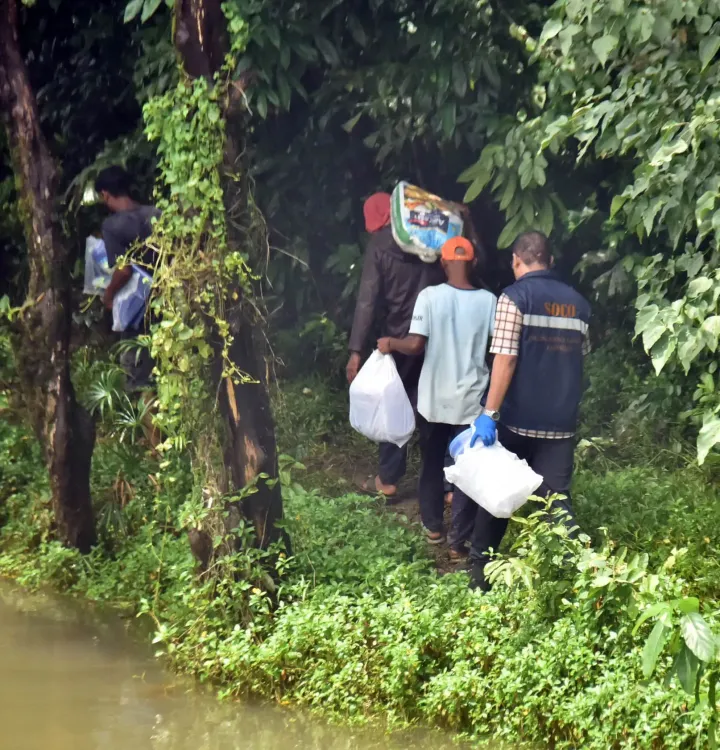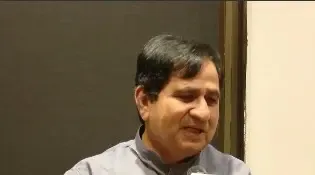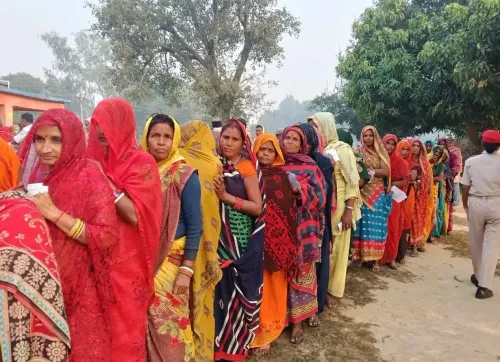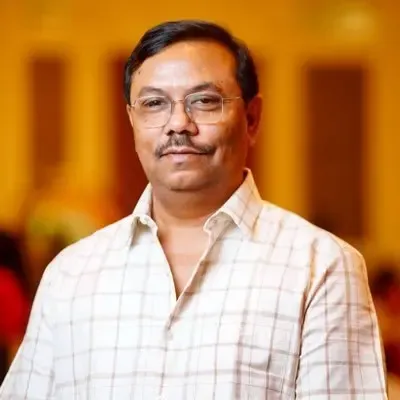What’s Happening in the Dharmasthala Case? SIT Resumes Excavation Operations!

Synopsis
Key Takeaways
- Excavation operations resumed by SIT
- Discovery of bones and denim fabric
- Judicial oversight requested by activists
- Concerns about high-level interference
- Human rights implications raised
Mangaluru (Karnataka), Sep 17 (NationPress) In a significant advancement, the Special Investigation Team (SIT) investigating the Dharmasthala murder case has recommenced excavation activities on Wednesday in the Banglegudde area of Dharmasthala temple town, where they have gathered bones and soil from suspected burial sites.
A dedicated team of 50 to 60 personnel, comprising SIT officers, Scene Of Crime Officers (SOCO), and additional staff, is overseeing the excavation efforts coordinated by municipal workers.
The team has brought along various materials, including a sack of salt, five to six plastic PVC pipes, boxes, and more to the location.
Confirmations from sources indicate that the team has discovered bones and pieces of denim fabric at newly identified burial sites.
Continuing their work despite the rain, the team has collected bones and soil samples from these locations as they excavate between the 11th and 12th burial sites. This development is particularly important as SIT Chief Pronab Mohanty briefed Chief Minister Siddaramaiah on Tuesday about the investigation's progress.
This excavation is prompted by statements from Vittal Gowda, a relative of Soujanya, who was reportedly kidnapped, gang-raped, and murdered in Dharmasthala.
Gowda alleged that he witnessed a pile of children's bones and dead bodies being buried in Dharmasthala, prompting the SIT to launch these excavation operations.
Simultaneously, activists have approached the Supreme Court, seeking urgent judicial oversight regarding the case.
The Supreme Court has been requested to take suo motu cognizance of the alleged mass burials in Dharmasthala following alarming disclosures by sanitation worker C.N. Chinnayya, known as the 'mask man', who reported decades-long secret burials connected to alleged crimes and sexual assaults.
Advocate Rohit Pandey has formally requested the Chief Justice of India to place the SIT under the supervision of a retired Supreme Court judge to ensure a transparent and independent investigation, along with immediate exhumation and forensic examination of all visible remains at Banglegudde and other identified locations under judicial oversight.
The petition outlines that, on July 3, 2025, Chinnayya’s formal complaint and sworn affidavit initiated the SIT probe, leading to exhumations and the recovery of human remains and victims' belongings that substantiate serious allegations.
The National Human Rights Commission visited Dharmasthala in August, confirming threats and intimidation faced by Chinnayya and his family.
Despite consistent testimonies from villagers and public admissions by a Senior Karnataka Cabinet Minister on September 13, which indicated the scale of mass burials resembling a “battlefield,” subsequent SIT efforts are encountering obstruction due to high-level pressure, endangering further exhumations.
Lawyers representing victims have reported harassment and intimidation from local police, undermining justice and the independence of legal counsel. Witnesses and their families face severe threats, raising concerns about a breakdown of the rule of law in Karnataka, as mentioned in the petition.
Additionally, Mahesh Shetty Thimarody, an activist opposing temple authorities, has filed a detailed complaint with the National Human Rights Commission alleging systematic police harassment, abuse of power, and malicious criminal prosecution aimed at silencing his voice and dismantling citizen-led movements.








